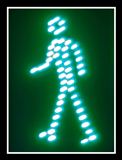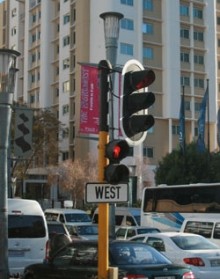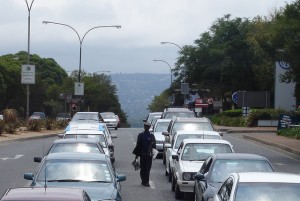Culture is the collective mental programming distinguishing people in one group from people in other groups*
I am making progress. I have moved through the “honeymoon” stage of adjustment into the “culture shock” phase. This second stage is not so pretty or enthusiastic so please bear with me while I work through the resistance.
How We Spend Our Time
We have not traveled since our trip to Mozambique. This past weekend was a long holiday weekend with Thursday, August 9, marking National Women’s Day. I attempted to plan a trip to Kruger National Park but a combination of indecision on my part and cultural miscommunication resulted in an email at 4:00pm the day before we were to travel letting us know that we did not have reservations and there were no rooms available anywhere.
So we spent the long weekend eating our way though Johannesburg, which, after 20 years in a town with a limited number of restaurants, was a delight.
Not There Yet
My biggest cultural challenge is driving in Jo’burg. When it comes to being comfortable finding my way around I am not there yet. I find the roads to be very, very stressful.
We live in a neighborhood of high rise apartments and financial office buildings. This is said to be the richest square mile in Africa. The roads, relatively quiet on the weekends, are busy with determined, impatient and volatile commuters Monday through Friday.
It is odd that African people, generally good natured and relaxed, turn into demons on the roads. Any hesitation, even if motivated by American politeness, is met with impatient honking and an immediate effort to pass the offending vehicle no matter the danger.
Motorcycles have no rules and drive at high speed between lines of traffic, along shoulders, anywhere they feel like it.
White taxi vans push in and out of traffic with “might makes right” aplomb. Crashing is common.
Traffic lights, called “robots” here, are often just plain not working. When this happens someone will be assigned to direct traffic during rush hour but during the day and night drivers are on their own to negotiate the intersection where, like the rest of the roads, it is every man for herself. It is a dangerous and difficult experience for an American driver used to being protected by the traffic laws.
(This is Africa, America is better. Bear with me, it’s a phase. )
In addition to the Darwinian culture of the roads, there is the culture of the streets. Every busy intersection has a small community of people looking to acquire a small portion of the wealth: women with toddlers sit in the median calmly waiting to catch the eye of a sympathetic driver; a young man leads an elderly blind woman from car to car holding out a tin can. There are people selling newspapers, people handing out advertisements, people selling telephone car chargers and people selling bundles of coat hangers. There are jugglers and dancers trained to stand still, arms to their sides between lanes of moving traffic. As soon as the light changes and cars stop, they start tossing sticks, or kicking their feet. At the next intersection, there are people rushing up the moment the light turns red to insist on washing my car windshield.
And then, at the lesser intersections, there are the just plain beggars. They have a look. They wear abysmal dirty rags, bare feet and a facial expression of misery. They have a universal gestured. They lean toward the driver with a look of desperate pleading, raise their gathered fingers toward their mouth and then with the same gathered fingers, point to their stomach. It is pathetic but, once, when I said no, the young man pointed to the Garmin on the dash and gestured again that he was hunger. That just made me mad. And made me wonder how hungery he really was if he still had the energy to judge me.
“When the family members start to experience the “real” culture of the foreign country, which may be sometimes disorientating and totally different from their own, they may feel irritated and disturbed.”*
My point is all this is going on while traffic is moving swiftly from one robot to the next robot (which may or may not be working). Lights are changing causing the impatient driver behind me to begin honking while the window washers are still leaning toward me trying to beg for more than the 5 Rand I just paid for their unwanted services; motorcycles, free of any lawful constraint and required to wait for no timid American driver, are cutting in and out of traffic and pedestrian are crossing anywhere and anytime they like.
Pedestrians
I’ve said this is not a walking city but many, many people do walk. I tried it once. I walked to the huge and famous Sandton City Shopping mall. It is a walk of about 20 minutes. I was nearly run over more than once.
Part of it is my fault. I still have a tendency to look the wrong way for oncoming traffic. The other fault is, again, there seem to be no rules. Definitely no one has heard the rule that pedestrians have the right of way.
After two or three close calls, I started following a young native woman, crossing when she crossed, trying to keep her between me and the oncoming traffic. We started up a  conversation and I asked her why she did not wait for the green walk light.
conversation and I asked her why she did not wait for the green walk light.
She did not appear to know what I was talking about!
I pointed out the light. I explained that, in America when this light turns green and we see the walking person light up that is when it is safe to cross the street. She appeared to find my explanation enlightening. I really think she did not know what that light was for.
Tiny Glimmer of Enlightenment
An Afrikaner I met recently pointed out that most of these drivers are first generation. When you think our people have been driving cars since the invention of the Model T, it helps with understanding – but not with the stress.
Phases of Adjustment
According to my research this phase could last a long time, maybe forever! Let’s hope the little bit of self awareness I get from writing this blog will help me work through it quickly.
I will be home, and probably plagued by another perspective on culture shock, on Saturday.
Intercultural Adaptation among Expatriate Spouses and Children page 35




Another wonderful entry, Dana. Thanks so much for sharing your impressions, as well as very interesting information, with us. Looking forward to seeing you back here very soon!
Beggars and street people seem to push American’s buttons. We deny poverty in our own country and don’t like it anywhere else either. But look at the ingenuity used to make a meal or two. At the stops you have all this entertainment and life effervescing. The beggars? They are also out working and unlike what Reagan said, they do not retire to a new Mercedes. Keep change on the dash, give it out freely with grace, and give enough to matter. Not miserly, but enough to matter. By the way, the beggar pointing to the GPS. She gifted you a lesson in humility. She didn’t need it as she knew where she was but you did as you are the one who is lost? Finding ones bearings in a new culture is always so interesting. Thank you for a beautiful blog with thoughts and observations worth sharing. The day may come when you are a stranger in your own land.
Mark you are kinder than I. I do give out change but I don’t buy everything that is for sale. Today I observed through the rear view mirror how others handle the intrusion of a man selling strawberries in the intersection. The key is to not make eye contact. When I stare straight ahead at the traffic light the vendor of the moment moves on.
Yes I am sure the berries were delicious but I leave for home tomorrow so I don’t have time to eat them. I tried explaining this through the closed car window but the seller was having none of it. He didn’t move on until I refused to make eye contact. All this was going on while, you are right, I was lost.
Dana, I love hearing about your learning experiences there. Keep writing.
Toni
Dear Dana,
As with everone who reads your blog, I am so entertained and find myself looking forward to your posts! I’m sorry your last had a bit of a disillusioned quality to it; I’m afraid it was bound to happen, and, frankly, it’s right on schedule. You’ll come out of it to some degree, I promise.
Although there is a LOOOOT that reminds me of stories of Iran (and probably every other third-world country) the bit about the pedestrian traffic forced me to laughter, and to write about a phone-call from Teheran last month from Ali’s aunt Aktar:
She is an eighty-year-old dynamo that has always been a city-girl, and is quite savvy to the traffic and its murderous flow. She had been busy for days, going in and out to local shops in preparation of her first grandson’s first birthday-an event like all others, always displayed on monumental scale.
She got hit by a taxi-cab.
On the sidewalk.
The party was on as planned, the very next day, in spite of her “minimally” fractured hip. She would have nothing of such an annoyance as that derail her agenda.
Such is life, in its alter to our own. :0)
Karen
Thought of getting run over is exactly what makes me so irritable!
I am glad you are enjoying the blog.
Well expressed thoughts Dana!
After three years in Western and Eastern Europe I relive almost every line. I’m glad to be back home in Virginia but oh-so-thankful for the other-worldly experience.
BTW, I’ve always used a slighlty different definition of “culture” : It’s the system a group of people develop over time that allows us to make the greatest level of coherency out of all they see, do and feel. It’s always a bit incoherent so we’re constantly trying to make more sense out of what we encounter. The “shock” of experiencing a different culture is very real and requires time and prayer to get over. So we’re praying for you to continue to enbrace the shocks and come out in awe of God’s wonderful, and often very messy, world!
Having returned home to the USA since writing this post, I have continued to think about culture and the difference between being inside or outside the majority world view. My philosophy major son tells me I am struggling with philosophical questions. Difficult as it is, it’s one of the reasons I moved overseas: to have my eyes opened.